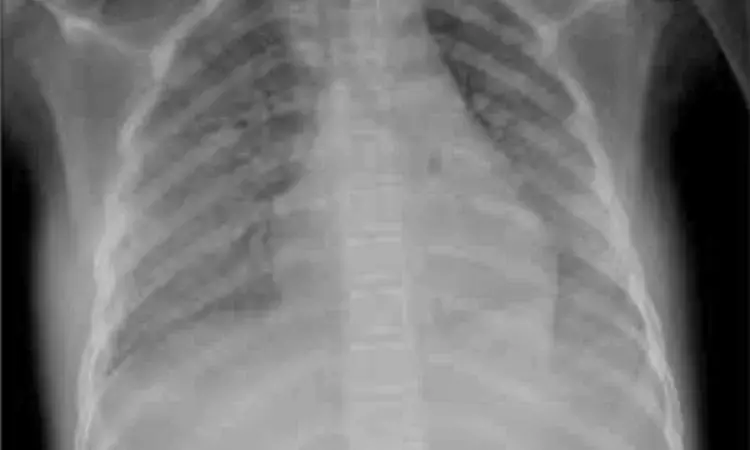- Home
- Medical news & Guidelines
- Anesthesiology
- Cardiology and CTVS
- Critical Care
- Dentistry
- Dermatology
- Diabetes and Endocrinology
- ENT
- Gastroenterology
- Medicine
- Nephrology
- Neurology
- Obstretics-Gynaecology
- Oncology
- Ophthalmology
- Orthopaedics
- Pediatrics-Neonatology
- Psychiatry
- Pulmonology
- Radiology
- Surgery
- Urology
- Laboratory Medicine
- Diet
- Nursing
- Paramedical
- Physiotherapy
- Health news
- Fact Check
- Bone Health Fact Check
- Brain Health Fact Check
- Cancer Related Fact Check
- Child Care Fact Check
- Dental and oral health fact check
- Diabetes and metabolic health fact check
- Diet and Nutrition Fact Check
- Eye and ENT Care Fact Check
- Fitness fact check
- Gut health fact check
- Heart health fact check
- Kidney health fact check
- Medical education fact check
- Men's health fact check
- Respiratory fact check
- Skin and hair care fact check
- Vaccine and Immunization fact check
- Women's health fact check
- AYUSH
- State News
- Andaman and Nicobar Islands
- Andhra Pradesh
- Arunachal Pradesh
- Assam
- Bihar
- Chandigarh
- Chattisgarh
- Dadra and Nagar Haveli
- Daman and Diu
- Delhi
- Goa
- Gujarat
- Haryana
- Himachal Pradesh
- Jammu & Kashmir
- Jharkhand
- Karnataka
- Kerala
- Ladakh
- Lakshadweep
- Madhya Pradesh
- Maharashtra
- Manipur
- Meghalaya
- Mizoram
- Nagaland
- Odisha
- Puducherry
- Punjab
- Rajasthan
- Sikkim
- Tamil Nadu
- Telangana
- Tripura
- Uttar Pradesh
- Uttrakhand
- West Bengal
- Medical Education
- Industry
Granulocyte Concentrate reduces mortality and benefits neutropenic children with severe infections: Study

Granulocyte Concentrate reduces mortality and benefits neutropenic children with severe infections suggests a study published in the Journal of Personalized Medicine.
Infections remain the leading cause of mortality among neutropenic patients with haematologic malignancies, making effective infection management crucial. Achieving a sufficient neutrophil count is essential for the elimination of pathogens. Granulocyte concentrate (GC) can be a treatment option for neutropenic patients with severe infections.
This study aimed to evaluate the efficacy, safety, and impact on survival of Granulocyte Concentrate transfusions in neutropenic children with severe infections treated over the past 13 years in a single centre. Methods: The retrospective study analysed clinical data from 60 children (median age 9.5 years) who received Granulocyte concentration transfusions at our centre. Granulocytes were collected by apheresis from donors stimulated with granulocyte colony-stimulating factor. The majority of the patients (70%) were diagnosed with acute leukaemia.
The main indications for Granulocyte Concentrate were severe pneumonia (45%) and bacterial sepsis (38.33%). Results: The patients received 1 to 29 Granulocyte Concentrate transfusions for 1 to 70 days, with a median time of administration of 3 days. Neutrophil counts increased to >1000/µL within a median of 5 days. Granulocyte concentrations were well tolerated by most patients. One patient presented symptoms of anaphylaxis, the other acute lung injury related to transfusions, and alloimmunisation was reported in one patient. Of the patients analysed, 78.33% survived the infection that justified Granulocyte Concentrate administration.
They did not observe significant differences in survival depending on the aetiology of the infection. Conclusions: Based on our research, Granulocyte Concentrate appears to be a beneficiary for neutropenic children with severe infections and reduces infection mortality rates. However, further well-designed randomised trials are needed to define its role in this setting.
Reference:
Mielecka-Jarmocik, Gabriela, et al. "Use of Granulocyte Transfusions in the Management of Severe Infections Among Children With Neutropenia." Journal of Personalized Medicine, vol. 14, no. 11, 2024.
Dr. Shravani Dali has completed her BDS from Pravara institute of medical sciences, loni. Following which she extensively worked in the healthcare sector for 2+ years. She has been actively involved in writing blogs in field of health and wellness. Currently she is pursuing her Masters of public health-health administration from Tata institute of social sciences. She can be contacted at editorial@medicaldialogues.in.
Dr Kamal Kant Kohli-MBBS, DTCD- a chest specialist with more than 30 years of practice and a flair for writing clinical articles, Dr Kamal Kant Kohli joined Medical Dialogues as a Chief Editor of Medical News. Besides writing articles, as an editor, he proofreads and verifies all the medical content published on Medical Dialogues including those coming from journals, studies,medical conferences,guidelines etc. Email: drkohli@medicaldialogues.in. Contact no. 011-43720751


